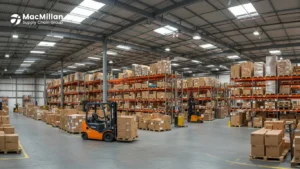The COVID-19 pandemic rudely shocked every sector by forcing chip makers to shut down production, testing, and distribution of chips. Supply chain issues also arose as a result of the pandemic, which made it difficult for chip makers to source for silicon wafers and other raw materials. It has been observed that in a bid to stock up and escape the heat of chip shortage, some manufacturing firms and companies order way more chips than they need which creates a short supply, reduces the chip in circulation and forces those in supply to sell at higher prices.
To avoid this over ordering, chip manufacturers have deployed an inventory method to help track and ensure order fulfillment. They have also canceled short-term supply arrangements with their new and existing customers and their orders cannot be canceled after an order is made and confirmed. On a global scale, the major reason why chip supply is scarce is because of a decline in the production capacity. Another reason is the supply chain issues that happen as a result of unforeseen delays between the process of production and shipping. Chip manufacturing companies are working with experts to provide premium freight solutions That will cut down the lead times to the barest minimum.
The Current Chip Shortage Situation
The long term effect of the pandemic on the semiconductor industry is still being felt as two years after the pandemic, there is still a wide spread shortage of chips which has in no little way, caused a decline in the production of consumer electronics. Especially as they are dependent on the chip industry to manufacture and supply the chips. which are the major raw materials used in the production of any electronic products. The impact of the current chip shortage has a huge economic effect because the unavailability has crippled the global supply chain of new cars, game consoles, and new computers. It is currently difficult to produce products that require several thousands of components to produce.
The problem of chip shortage is felt by many industries. General motors, Samsung, Intel, down to the manufacturers of game consoles all feel the effect of the shortage. Even the chip manufacturing firms have experienced their own fair share of the challenges as they are finding it difficult to source for raw materials. Last year, the biggest manufacturer of the machinery used in chip production expressed their inability to access chips used in the production of their machines because of unavoidable supply chain issues in the chip supply chain globally. The chip shortage crisis looks like a never-ending cycle of irony, as semiconductor companies cannot produce machines for existing and new factories because the companies cannot access chips that are supposedly produced in these factories. Supply chain experts also expressed that the manufacturers of these machines have to struggle with those in the auto industry and other sector for the limited quantity of chip supply in circulation. Meaning that no industry gets a reasonable amount of chip that is large enough to increase production capacity. This leads to the question, when is the chip shortage going to end?
When Is the Chip Shortage Going to End?
In recent years, there have been many predictions on when precisely, the chip shortage is going to end, and even though there were strong indications that the shortage will be over by the second quarter or third quarter of 2022, the fourth quarter of the year is upon us with no end in sight. It seems like the more of these predictions are made, the scarcer chips are. Microcontroller chips, which are in high demand by those in the automotive industry and are a major component in the production of electric vehicles, are scarcer compared to other chips without long-lasting legacy nodes. Key players and executives in the manufacturing industries are aware that the chip shortage problems will not come to an end soon.
Industry experts have advised that for the chip shortage to end anytime soon, the rate of global demand for chips need to drastically decline next year and the coming years, until there is an equilibrium between the demand and supply. The Commerce Secretary of the United States describes the current state of the chip supply chain as “unstable” and will remain unstable until the entire industry can find sustainable ways to ensure increased and consistent chip manufacturing and distribution that will cater to the current and future chip orders. There were plans by chip making companies to scale production by the second half of this year yet, supplies of chip has been unable to meet with the ever increasing demand. Auto manufacturers are having a hard time understanding why it would take up to six months for chip manufacturers to produce, test, and ship a single chip to a waiting customer; while it takes them a day to begin and wrap up the production of a new car. Industry experts have proffered a solution called cross-docking that will help lessen delivery time of chips from the manufacturer to the auto factories.
What Is the Way Forward?
Nothing tangible can be done within a short while to deal with the issue of chip shortage. The semiconductor industry is playing its part by increasing production, and curbing customers from ordering more than a stipulated quantity of chips. This is not the first time a global shortage of chips is happening and from the response of companies in the past year, they are doing all they can to mitigate the effects of the shortage, even if it extends beyond the next year. Key semiconductor companies are putting plans ahead of the coming years to build plants in the United States with Intel expecting a projected growth of up to $100 billion at its site in Ohio in the next 10 years. Currently, companies around the world are constructing semiconductor manufacturing centers as a means of bridging the wide gap between demand and supply of chips. In the past one year, four new semiconductor fabrication projects were created in the European Union and the United States, respectively. While South Korea and Japan have five new projects respectively. China and Taiwan currently rank globally as the leading manufacturers of semiconductors, with ten fabrication projects each. Supply chain experts are also working to provide time-critical logistics that would fix the holiday demand and supply chain issues and ensure that all chip orders are processed and delivered in time.
It is impossible to accurately answer the question of when the chip shortage is going to end because it is heavily dependent on unpredictable economic and infrastructural variables. At the moment, one thing is clear: Companies and all those concerned are doing all they can to make the chip shortage unnoticeable and less overwhelming, even if it extends beyond 2023.





